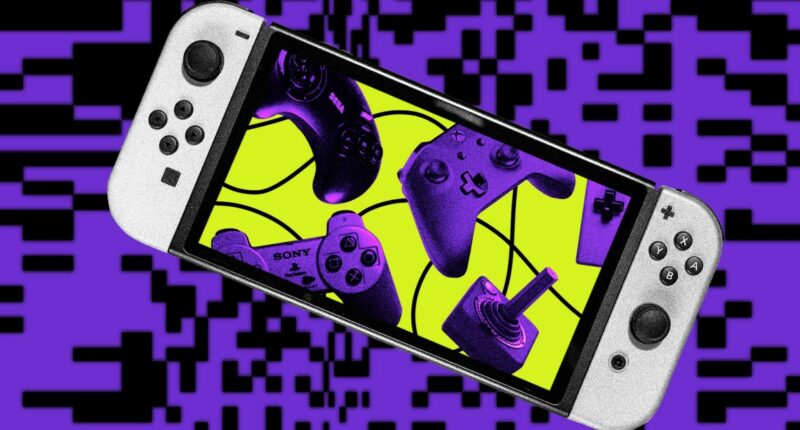Share this @internewscast.com
In a recent episode of Post Games, host Chris Plante delves into how video games can aid players in understanding death. He is joined by Kaitlin Tremblay, who is involved in the creation of Ambrosia Sky, a game centered around death.
“What is it about games that is so useful for exploring the topic?” Plante asks.
“I think there’s something really lovely about the way in which games invite players in,” Tremblay remarks. She mentions, “something quite lovely about asking a person to cooperate and to be a part of the story, and to move through the space.”
This conversation has a tone and substance unlike anything I’ve encountered on a gaming podcast before, highlighting what sets Post Games apart. By mimicking a more deliberate and intellectual NPR style, it distinguishes itself from other gaming media.
Not long after departing from Polygon, where he was the editor-in-chief, Plante launched Post Games, a program he dubs “a weekly podcast about how and why we love video games.” Targeting a mature audience, the show follows an NPR-like format with concise segments and weekly episodes lasting around an hour. Plante is seeking support from fans via Patreon to sustain the podcast.
“Practically everything in games media targets young people”
Plante mentions to The Verge that many other gaming podcasts are “aimed almost exclusively at those under 30 who have the luxury to listen to several four-hour shows weekly.” He notes, “Most gaming media targets younger audiences because it’s created by young people and sales teams believe they can market to them effectively.” However, Plante points out that players over 35 possess “distinct interests and expectations.” This demographic is substantial, with the Entertainment Software Association noting that over half of the 205.1 million Americans who play video games are beyond the age of 35.
“It’s really basic supply and demand,” he adds. “Yet, very few outlets aim to cater to this demand. The sources older audiences rely on for information — newspapers, magazines, and audio — have, at best, given gaming culture scant attention and, at worst, ignored it altogether.”
Before I go any further, I should make a few disclosures. Plante, until May, was the editor-in-chief of Polygon, formerly The Verge’s sister site dedicated to gaming and entertainment. He was a co-founder of Polygon when it launched in 2012, and he later worked at The Verge from September 2014 to July 2017. I never worked with him directly, but I met Plante for the first time in person earlier this year over dinner at the Game Developers Conference.
This is all to say that when Vox Media announced on May 1st that it sold Polygon to Game Rant owner Valnet, and Plante said that he wouldn’t be part of the site moving forward, I was bummed for him. But by the end of the month, he had published the first episode of Post Games, and he’s posted a new episode every week since. It’s a great podcast.
Each episode is about an hour long and split into three acts. Much of the show revolves around interviews on a certain topic, and a third act features Plante discussing the news of the week. But the broader topics of the episodes don’t always align with the current big thing in gaming.
The first episode was about the history of the Independent Games Festival’s Seamus McNally Grand Prize, for example. The second was about sexy games. When the episodes do tackle topics of the moment, Plante tries to put his own spin on things; when Death Stranding 2: On the Beach came out, Plante scored a rare interview with YouTuber videogamedunkey, who initially hated the first Death Stranding but revisited it two years later.

The show is available for free with ads, but people who pay a $5 per month subscription on Patreon get early access to ad-free episodes with a bonus segment and access to an exclusive video every month. While planning out what Post Games would be “my logic was, if I wasn’t willing to spend $5 on it, then why would anybody else?” Plante says. The show just hit 1,000 paid subscribers, and even if things flatten from there, “that would be enough to cover my family’s health insurance.” If the show gets 2,000 by the end of the year, “I’ll feel confident about this being my future.”
Game journalists who leave or were laid off from traditional gaming publications are increasingly doing their own thing, such as the worker-owned Aftermath from former Kotaku writers and Patrick Klepek’s parent-focused Crossplay Substack publication. And while publications everywhere are facing pressure from things like AI search engines and Google Zero, Plante argues there are a lot of audiences that are underserved by more traditional business models because of their reliance on scale.
“As somebody in the media, you hear a lot about how great independent media is because of its benefits for the people who make the media, but I think there’s a larger conversation that needs to be had about the benefits that it has for the audience, for the readers,” Plante says. “I think if you focus on the readers and the audience, you will find more business opportunities for more independent creators or more just smaller funded creators.” He also says that if mainstream publications don’t want to serve the “humongous and growing audience” of older gamers, “I’m happy to.”
Plante sees Post Games as his thing for the next long while. “My only dream for the future of the show is that I’m doing this in 10 years,” he says.





